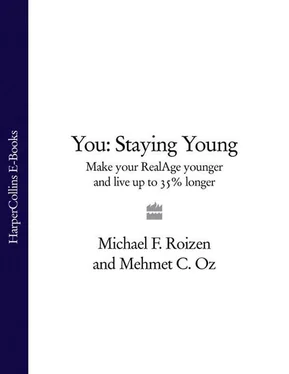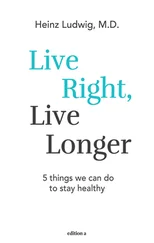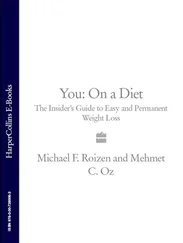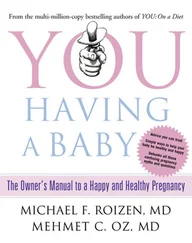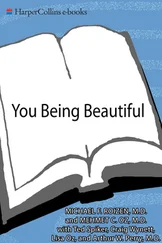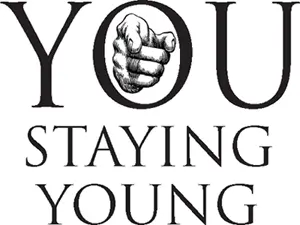
Make your RealAge younger and live up to 35% longer
DR MICHAEL F. ROIZEN
DR MEHMET C. OZ
With Ted Spiker, Craig Wynett, Lisa Oz and Dr Mark A. Rudberg
Illustrations by Gary Hallgren

This publication contains the opinions and ideas of its authors. It is intended to provide helpful and informative material on the subjects addressed in the publication. It is sold with the understanding that the authors and publisher are not engaged in rendering medical, health or any other kind of personal professional services in the book. The reader should consult his or her medical, health or other competent professional before adopting any of the suggestions in this book or drawing inferences from it.
The authors and publisher specifically disclaim all responsibility for any liability, loss or risk, personal or otherwise, which is incurred as a consequence, directly or indirectly, of the use and application of any of the contents in this book.
To all who desire longer life so they can serve more
Cover
Title Page
Note to Readers
Dedication
Part I: Why You Age and How You Stay Young
Introduction
MAJOR AGER Bad Genes & Short TelomeresHow Genetics Influences Ageing – and You Control Your Genes
Chapter 1: Develop a Memorable Memory
MAJOR AGER Oxidation & Inefficient MitochondriaKeep the Energy Factories of Your Body Running Smoothly
Chapter 2: Take the Heat off Your Heart
MAJOR AGER Stem Cell SlowdownWhat You Can Learn – and Use – from Stem Cells to Keep Your Body Strong
Chapter 3: Get the Better of Stress
MAJOR AGER Declining DefencesWhy Bacteria and Viruses May Be Your Most Powerful Enemies
Chapter 4: Pump Up Your Vagus and Immune System
MAJOR AGER ToxinsKeep Sludge from Seeping into Your Body
Chapter 5: Cancel Out Cancer
Chapter 6: Breathe Easy
MAJOR AGER GlycosylationHow Excess Glucose Can Age You
Chapter 7: Don’t Be Pickled by Diabetes
MAJOR AGER Calorie Consumption & Slowing SirtuinUnderstand the Ultimate Anti-Agers
Chapter 8: Get Great Guts
MAJOR AGER Neurotransmitter ImbalanceHow the Chemical Message System in Your Brain Can Age You
Chapter 9: Sleep Your Way to the Top
MAJOR AGER Wacky HormonesThe Natural Fluctuations in Hormonal Levels Aren’t All Bad
Chapter 10: Make the Most of Menopause
Chapter 11: Protect Your Privates
MAJOR AGER No Nitric OxideHow Your Levels of This Gas Can Change Your Health
Chapter 12: Live the Sexy Life
MAJOR AGER UV RadiationHow the Sun Can Nourish or Destroy Your Body
Chapter 13: See the World
MAJOR AGER Disuse AtrophyPrime the Pump to Keep the Body Working Well
Chapter 14: Muscle Up Your Bones
MAJOR AGER Wear & TearHow Your Body Handles the Breaking-down Process
Chapter 15: Hear Ye, Hear Ye
MAJOR AGER Unforced ErrorsWhy Our Bodies Can’t Withstand the Crazy Things That Happen in Life
Part II: The YOU Extended Warranty Plan
Chapter 16: The Fourteen-Day YOU Extended Warranty Plan
Chapter 17: The YOU Toolbox
Chapter 18: YOU Getting Stronger
Acknowledgements
Index
About the Author
Also by the Authors
Copyright
About the Publisher
Part I Why You Age and How You Stay Young
Most of us think ageing happens like this: we go on our way, living happily through life, until one day we start to feel old, and the symptoms domino right before our cataract-clouded eyes. Our bones creak, our backs hurt, we go blank when trying to think of our neighbours’ names, we hate driving at night, we can’t play golf any more, we can’t hear what our spouses are saying, and our sex lives pretty much come down to brushing up against the washing machine. Soon we’re eating dinner at three-thirty and our primary goal of the day is staying awake long enough to catch Countdown .
To us, that approach means you’re drowning in life – not bathing in the beauty of it. We’re here to challenge that perception of ageing and create a new way of thinking about “anti-ageing medicine”. The traditional focus of the medical community has been on treating chronic diseases and reversing acute illnesses associated with ageing – cancer, heart disease, stroke. The assumption was clear: since heart disease and cancer alone account for over 50 percent of all deaths, you could live maybe 50 percent longer if you could avoid the big killers. As it turns out, this isn’t what would happen. As devastating as these diseases are, wiping them out as your killer increases your average life expectancy by only about nine and a half years – not the thirty to forty years that you would expect. Why? Because something else takes their place.
To add serious years to your life – and life to your years – you have to lower your risk for all diseases. And the only way to do that is to slow your rate of ageing on the cellular level . Curing cancer or any other disease does not necessarily do anything to change the nature or speed of your bodily ageing process. That’s because ageing and disease – although they interact with each other – aren’t the same thing. As we grow older, all of our systems slowly deteriorate, which makes us more vulnerable to disease. By slowing the ageing of our cells while simultaneously preventing disease, we can enjoy not only a higher quality of life but a much longer one as well. This is where we’re taking YOU.
What Is Your RealAge?
Throughout the book, we’ll refer to your RealAge – that is, a formula designed to figure out your biological age based on your lifestyle and behaviours, rather than your simple calendar age. Do good things, and your RealAge is much younger than your calendar age. Do bad things, and you can have the body of an oldster even if the calendar tells you that you haven’t hit thirty yet. One of the great things that the RealAge formula has taught us is this: Make changes, see the rewards. You can figure out your RealAge with a free test at – www.realage.com.
Of course, the reason why ageing is so intimidating isn’t because it appears to sneak up on you like a first-rate mugger. In reality, ageing is more like a savvy bank robber who’s spent months casing the joint. Why the discrepancy? Because there are huge delays between the cause of the problem and the effects you actually see in your life. And that means you have to start building defences in your thirties, forties and fifties against attacks that may not occur until your sixties, seventies and eighties.
Читать дальше
